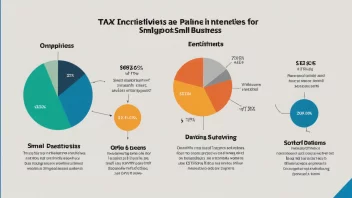Introduction
In this article, we will explore the critical relationship between public trust in government and policy compliance. Understanding this connection is vital for policymakers, researchers, and citizens alike. We will provide a step-by-step guide on how to foster public trust, leading to improved adherence to government policies.
Step 1: Understand the Importance of Trust
Trust is a fundamental element in the relationship between citizens and their government. When citizens trust their government, they are more likely to comply with policies and regulations. Here’s how to recognize its importance:
- Policy Effectiveness: Trust enhances the effectiveness of policies, as citizens are more willing to follow guidelines.
- Civic Engagement: Higher trust levels encourage citizens to participate in civic activities, fostering a more engaged community.
- Social Cohesion: Trust helps build social bonds, leading to a more cohesive society that works together for common goals.
Step 2: Enhance Transparency
Transparency is crucial in building public trust. When citizens have access to information regarding government actions and decisions, they feel more secure and informed. Here are some strategies to enhance transparency:
- Open Data Initiatives: Implement programs that allow citizens to access government data easily.
- Regular Communication: Use newsletters, social media, and public forums to keep citizens informed about policies and their impacts.
- Feedback Mechanisms: Create channels for citizens to provide feedback on policies and government actions.
Step 3: Foster Accountability
Accountability is another pillar of public trust. When government officials are held accountable for their actions, citizens are more likely to trust them. Consider these steps to foster accountability:
- Establish Clear Guidelines: Develop clear rules and regulations that outline the responsibilities of government officials.
- Implement Oversight Bodies: Create independent bodies that oversee government actions and ensure compliance with laws.
- Encourage Whistleblowing: Provide safe channels for citizens and employees to report unethical behavior without fear of retaliation.
Step 4: Promote Citizen Engagement
Engaging citizens in the decision-making process helps build trust. When citizens feel their voices are heard, they are more likely to comply with policies. Here’s how to promote citizen engagement:
- Public Consultations: Hold regular consultations to gather input from citizens on proposed policies.
- Participatory Budgeting: Allow citizens to have a say in how public funds are allocated.
- Community Forums: Organize forums where citizens can discuss issues and propose solutions directly to policymakers.
Step 5: Build Relationships with the Community
Building strong relationships with the community is essential for fostering trust. Here are some effective ways to strengthen those relationships:
- Community Outreach Programs: Develop programs that reach out to diverse community groups and address their specific needs.
- Collaborate with Local Organizations: Partner with local organizations to create initiatives that benefit the community.
- Celebrate Local Successes: Recognize and celebrate local achievements to foster a sense of pride and belonging.
Step 6: Ensure Fairness and Equity
Perceptions of fairness significantly impact public trust. When citizens believe that government policies are applied equitably, they are more likely to comply. Here are steps to ensure fairness:
- Equitable Policy Design: Design policies that consider the needs of all community members, particularly marginalized groups.
- Regular Assessments: Conduct assessments to ensure that policies are being implemented fairly.
- Address Inequities: Actively work to identify and address any disparities in policy impact.
Step 7: Measure and Adapt
Finally, it’s important to measure the effectiveness of trust-building initiatives and adapt as necessary. Here’s how to approach this step:
- Conduct Surveys: Regularly survey citizens to gauge their levels of trust and satisfaction with government policies.
- Analyze Data: Use data analysis to identify trends and areas needing improvement.
- Be Responsive: Make adjustments to policies and practices based on feedback and assessment results.
Conclusion
In summary, public trust in government is essential for effective policy compliance. By understanding the importance of trust, enhancing transparency, fostering accountability, promoting citizen engagement, building community relationships, ensuring fairness, and measuring outcomes, governments can create a more trusting relationship with their citizens. Ultimately, a government that is trusted is one that is more likely to succeed in its mission to serve the public effectively.






